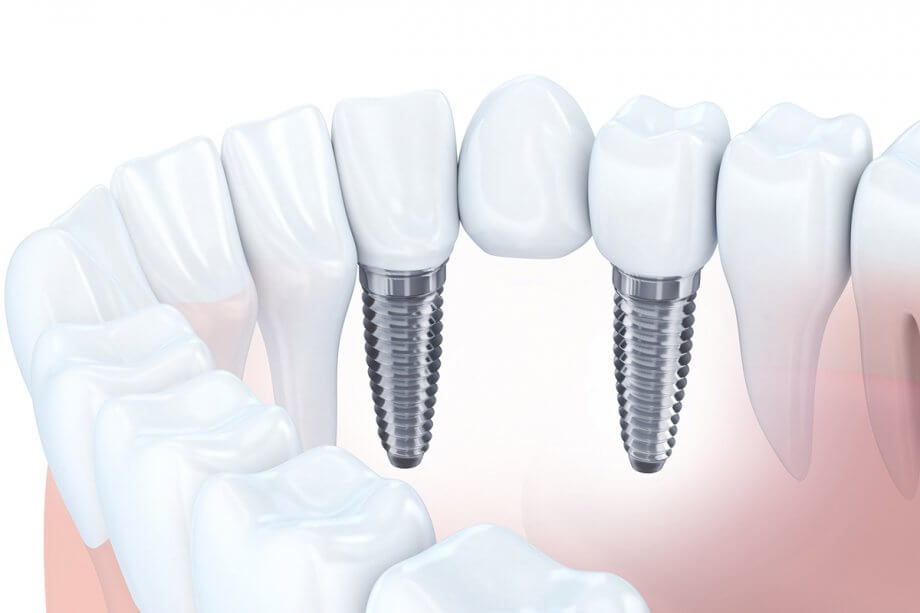Dental bridges are a durable and attractive solution to the problem of missing teeth.
Typically, a dental bridge lasts upward of 7-10 years. With proper installation and care, it could last a lifetime.
What Is A Dental Bridge?
A bridge consists of artificial teeth called pontics attached to healthy teeth on either side of the gap. The dentist permanently attaches bridges.
Bridges are an excellent alternative to partial dentures for patients who are only missing a few teeth. Patients experience fewer issues due to fit.
Types of Dental Bridges
Traditional Bridge
The traditional bridge receives support from two healthy teeth on either side. The healthy teeth receive dental crowns to take on the extra force exerted by the bridge. A traditional bridge works well for most patients, but dentists have created other alternatives.
Maryland Bridge
The dentist fixes a Maryland bridge to the healthy teeth on both sides of the gap, but instead of using crowns, the bridge has cemented wings that attach to healthy teeth.
Cantilever Bridge
Cantilever bridges are only attached to a healthy tooth on one side. Their construction stresses the attachment point greatly, so these bridges typically last for less time than other types.
Implant-Supported Bridge
An implant-supported bridge works much like a traditional bridge, but the dentist replaces the natural teeth on either side of the gap with sturdy implants. An implant-supported bridge is an economical alternative to an entire series of dental implants.
Factors Affecting Bridge Longevity
Bridges cause stress on the surrounding teeth that could cut down on their longevity. Cantilever and Maryland bridges cause the most stress. For this reason, implant-supported bridges have gained in popularity.
Signs That Your Bridge May Need Replacement
- Pain when brushing or chewing
- Tooth or gum sensitivity near the bridge
- Cracks or chips appearing in the bridge
- Feeling like the bridge is loose
If you notice any of these signs, call your dentist as soon as possible to have your bridge evaluated.
How to Preserve Your Bridge
Proper home care is a must for people with bridges. Brush, floss, and use mouthwash daily as your dentist recommends. You will need special tools to floss around a bridge, called interproximal brushes. These tiny brushes are easy to find at pharmacies.
Behavioral changes can also help your bridge last longer. Try to control any tooth-grinding habit. Avoid smoking or chewing tobacco because this can weaken your gums. Stay away from eating ice or chewing excessively on other hard foods.
Discover More About Bridges
Bridges can be a functional, long-lasting replacement for your missing teeth. If you are ready to smile again and want to inquire about bridges, call our Brunswick, OH office at 330-741-3334 for a consultation. Our dentist will meet with you to discuss your options for tooth replacements.

